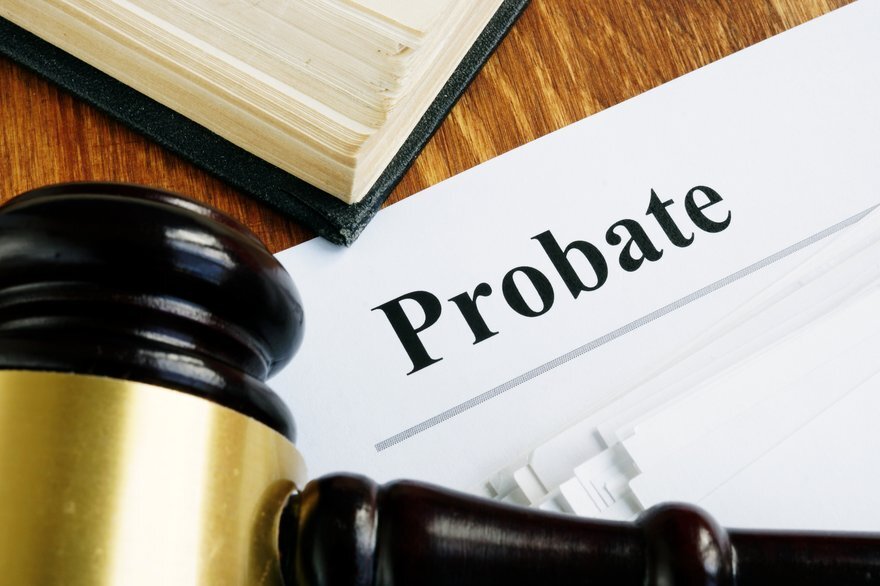
What Is Probate?
Probate is the legal process through which courts settle estates. In the absence of a will, the court appoints an administrator or personal representative to serve as executor or trustee. If there is a will, it names the person who is intended to serve as executor or trustee. The executor or trustee has the legal authority to:
- Distribute assets to heirs or beneficiaries
- Gather and value the assets owned by the estate
- Pay bills and taxes
The purpose of probate is to prevent fraud, ensure the validity of wills, identify and appraise property, and distribute the estate while ensuring that all creditors have been paid. After these matters have been sorted out, the court will issue an order distributing the property and closing out the estate.
The initial petition process begins with a notice of the decedent’s death and that a probate of his or her estate is being initiated and is published in a Los Angeles County, Orange, San Diego, San Bernardino, or Riverside legal newspaper.
If a Will is executed and recorded, the court will docket it with the case; a petition for probate of the estate will be filed with the court, and the court will approve the appointment of an executor designated under the Will.
If a person has no Will and dies intestate, a petition for administration of the estate is filed with the court. Unlike a trust after death, which can avoid probate, this petition names an administrator of the estate—usually a relative of the decedent—for approval by the court.
After being approved by the Riverside, San Bernardino, San Diego, Orange, or Los Angeles County Probate Court, an executor or administrator receives Letters Testamentary or Letters of Administration from the court as proof of his or her ability to manage the probate process. The executor/administrator then marshals all of the assets in the name of the decedent and files an inventory and appraisal report with the probate court.
The executor/administrator of a will or trust must give creditors four months from the issuance of Letters Testamentary to file their claims. A creditor can either approve or deny a claim before they sue to enforce it. If the claim is denied, the creditor has ninety days to sue to enforce it. After the time to file a creditor claim expires and all other requirements of a probate administration are fulfilled, the executor/administrator can file his or her Final Report with the court and request court approval of actions taken by him/herself.
Can Probate be avoided?
Despite the fact that a Will can avoid probate, it does not remove all aspects of estate planning. A Will is not the best legal document to use in the absence of a living trust. A will is a legally binding document that helps to ensure that an estate plan will be implemented after death.
If a person’s estate falls below a certain threshold, the estate does not require court supervision to be settled. Additionally, certain assets transfer automatically when a person dies without any probate required. The following are a few of the most common types of assets that pass without probate:
- Beneficiary Designations
- Joint Tenancy Asset
- Transfer on Death Accounts / Payable on Death Accounts
- Community Property With Right of Survivorship
If the decedent created a living trust that owns their largest assets, and those assets are then transferred into the living trust, then probate will not be necessary.
How Long Does a Probate Take?
Because time delays exist between the filing of documents with a court and the hearing related to those documents—usually 60 to 90 days in the Riverside and San Bernardino County Probate Courts—and because mandatory four-month creditor claim periods exist, probates will usually take a minimum of eight months to one year to go from initial filing to approval of the Final Report and distribution of assets to beneficiaries. Typical probate handled by persons representing himself or themselves takes longer, usually between eighteen months and two years.
The Cost to Probate a Southern California Estate
Probate fees are high. California law sets the fees that executors and attorneys for the executors must pay to administer estates, which are commonly referred to as statutory fees. These fees include the cost of filing and publishing notices of the probate, an appraiser’s fee, and certification costs. The statutory fees are based on the value of a deceased person’s estate.
When selling a probate property in Southern California, you might consider making a direct sale. A direct sale will save time and money by guaranteeing you a closing date. As professional investors themselves, direct buyers do not work on a commission basis. Instead, they buy properties for cash, in as-is condition and rehabilitate them one by one. As a result, direct buyers have exceptional knowledge of the current real estate market. After taking time to talk with you about your property and any hurdles you’re facing with probate proceedings, a direct buyer will help you understand your options and make an informed decision about whether to hire them or sell the house yourself by providing you with realistic estimates detailing how much money you would profit from each type of sale vs. their offer for a direct sale.
There is a simple and quick solution that will easily eliminate any concerns about probate properties. Working with Casey Buys Houses means that you can avoid any delays or problems associated with probate properties. By working with Casey Buys Houses, you will have total convenience and access to professional help through every step of the process. The price Casey Buys Houses offers is what you will receive at closing; all of your questions will be answered before we begin negotiating a price. Just send us a message or call Casey Buys Houses at (909) 455-9496 to discuss the market value of your property and possible options for selling it.
![Where we buy [market_city] homes](https://image-cdn.carrot.com/uploads/sites/43286/2025/06/Where-we-buy-homes--1920x800.jpg)
